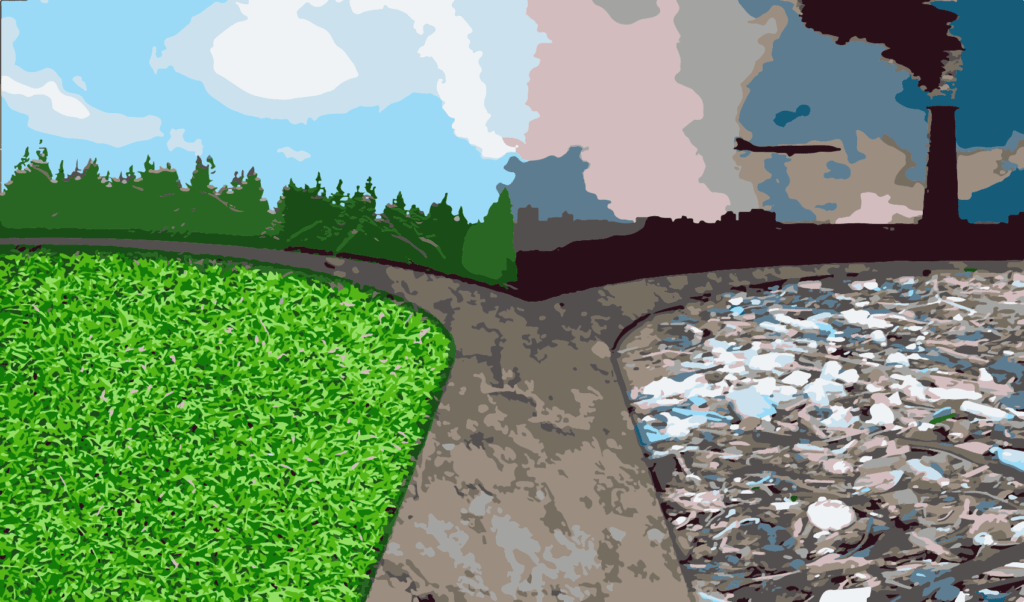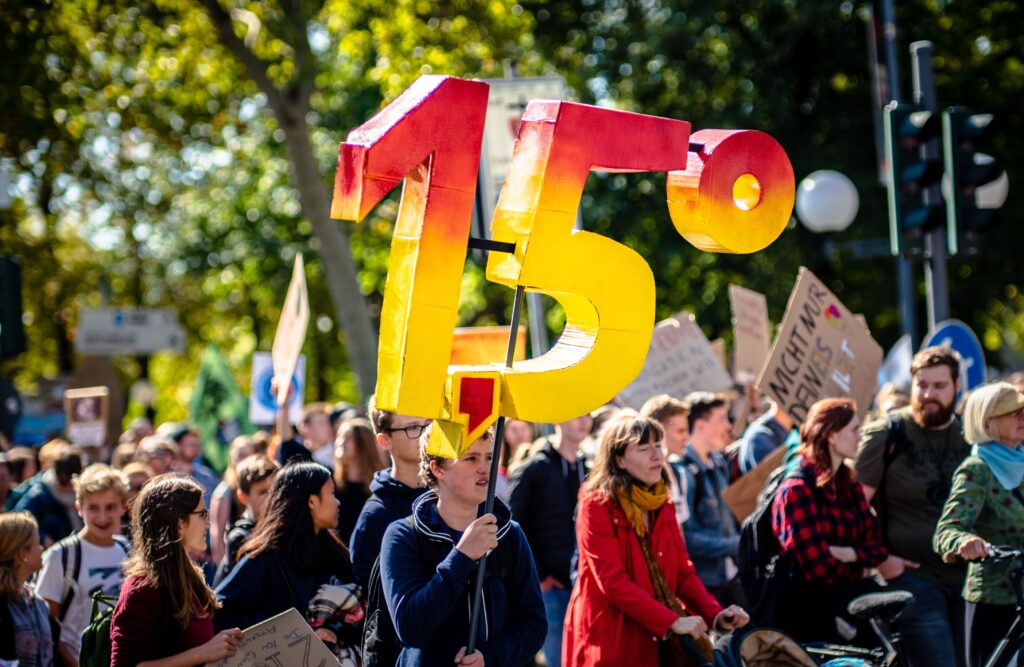We use cookies to improve your experience with Monash. For an optimal experience, we recommend you enable all cookies; alternatively, you can customise which cookies you’re happy for us to use. You may withdraw your consent at any time. To learn more, view our Website Terms and Conditions and Data Protection and Privacy Procedure.
Nudging sustainability
Published on July 28, 2022For Earth Overshoot Day, we explore whether psychology has the solutions to flip our behaviour to be more sustainable.
 Radical changes will be necessary to shepherd humanity onto a more sustainable path. : Michael Joiner, 360info CC B Y 4.0
Radical changes will be necessary to shepherd humanity onto a more sustainable path. : Michael Joiner, 360info CC B Y 4.0
For Earth Overshoot Day, we explore whether psychology has the solutions to flip our behaviour to be more sustainable.
Today is the day we have used up the resources our planet can replenish in a year, and we’re a little shy of 8 months in. Since the early 1970s environmental movements have pushed for more sustainable use of resources and limitations on pollution and growth. Those messages have, to a greater or lesser degree, been heard. But as of 28 July 2022, we remain on the backfoot.
Earth Overshoot Day expresses the unsustainable way we are using the Earth’s resources. It moves a little earlier each year, largely because our land is becoming more unproductive, even as our population increases.
Radical changes will be necessary to shepherd humanity onto a more sustainable path. But as anyone who has tried to break a habit can attest, even the smallest of changes are challenging. Many people say they want to be more sustainable, but somehow nothing changes.
University of Massachusetts professor of psychology, Icek Ajzen wondered why people want to do something, say they will do something, and then don’t. His 1985 theory of planned behaviour has underpinned a lot of behaviour change research ever since and is now being applied to sustainability.
Professor Ajzen said that for people to adopt a new behaviour, they need to think it’s a good idea, they need their friends to think it’s a good idea, and then they need to believe it’s actually within their powers to do. When one or more of those three elements is missing, good intentions go nowhere.
‘Nudging’ people to make more sustainable choices can be a matter of tweaking the way they see the world, so that less damaging options seem attractive, popular and possible.
“The behaviours people perform in their daily lives can have profound effects on their own health and well-being, on the health and well-being of other individuals, groups, and organisations to which they belong, and on society at large,” Professor Ajzen and his colleague Martin Fishbein have written.
REALITY CHECK
Expressed in land area, the amount of land available to sustainably feed and clothe humanity, plus remove our carbon emissions from the atmosphere is 1.5 global hectares per person. The amount of land currently used by humanity is 2.7 hectares per person.
Earth Overshoot Day fell on 25 December in 1971. It is on 28 July in 2022.
The United Nations projects that between 7.3 to 15.6 billion people will be living on Earth by 2100
Global energy-related emissions are expected to peak in 2024 and decline by 20 percent by 2050
BIG IDEAS
Quote attributable to Johanna Meier, Ruhr University Bochum
“Approximately one-third of demand-side greenhouse-gas emissions are related to food consumption and several studies show dietary changes will be critical if we are to stand any chance of keeping global warming below 1.5 degrees Celsius.”
Quote attributable to Grace Lee Hooi Yean, Monash University Malaysia
“Nudges have become an influential marketing and political strategy to deliberately manipulate how choices are presented to decision-makers to steer them toward desired behaviour.”
Quote attributable to Mark Boulet, Monash University
“A third, or 1.3 billion tonnes, of all food produced around the world is thrown away uneaten every year.”
Editors Note: In the story “Nudging sustainability” sent at: 27/07/2022 11:20.
This is a corrected repeat.













